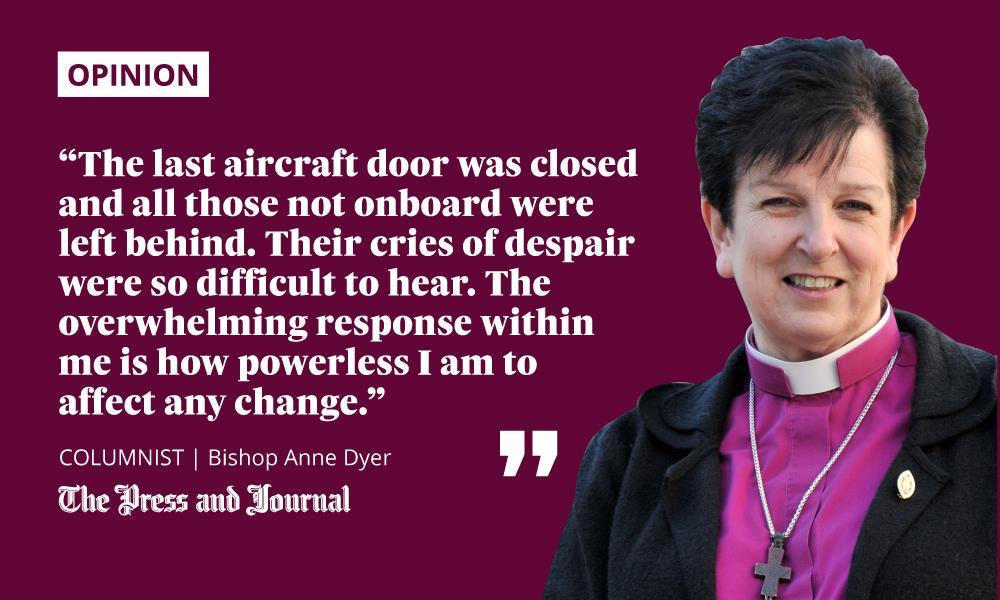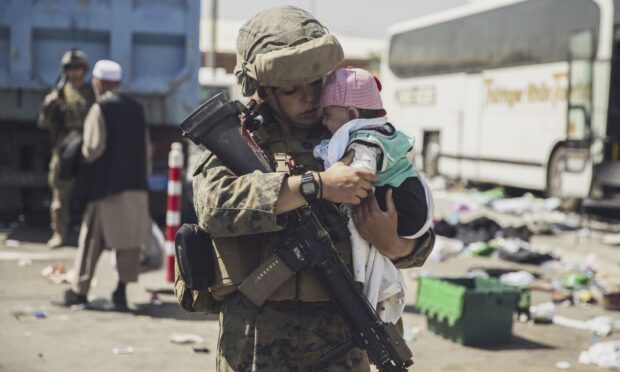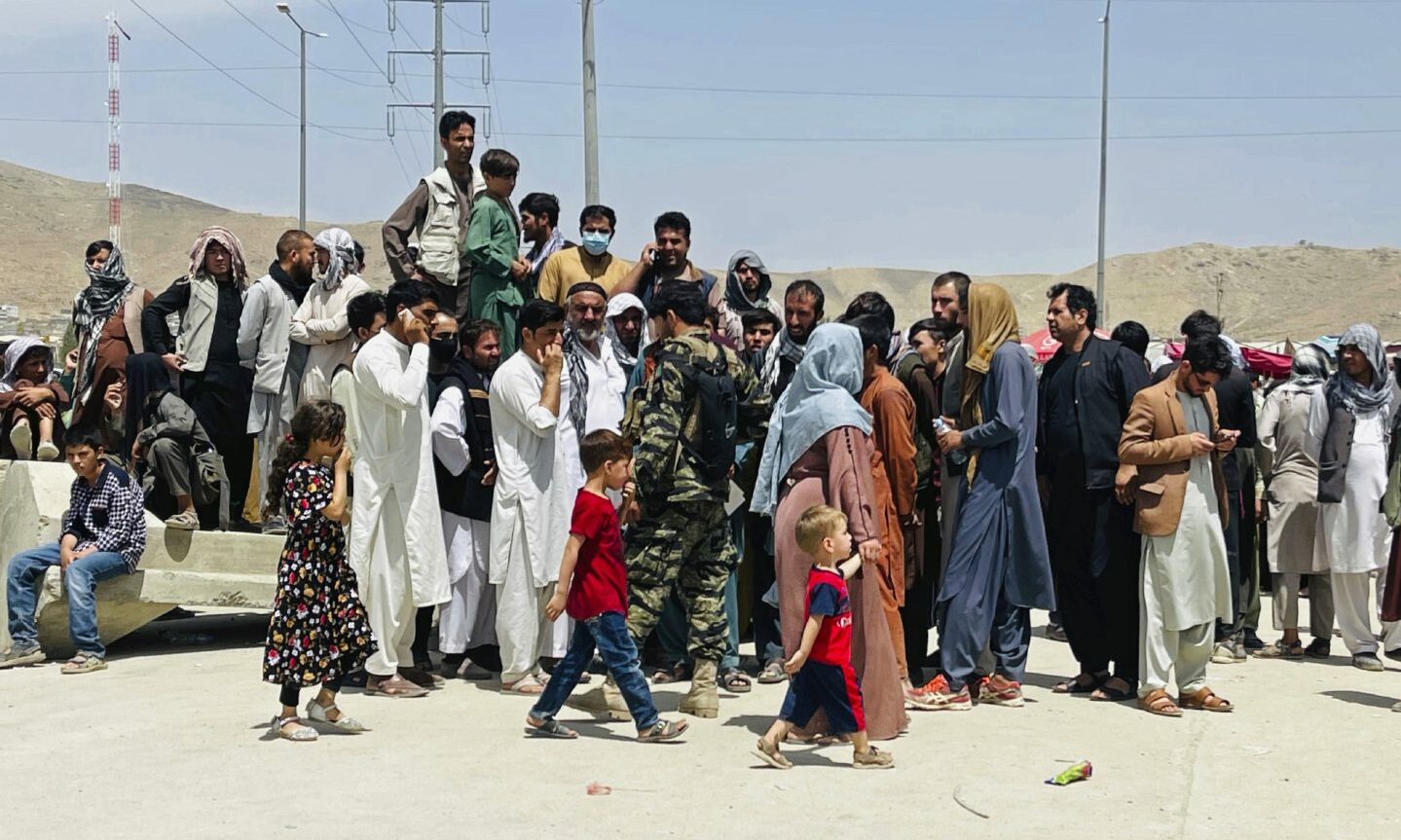Through the last few weeks, day after day, I have been following the news reports from Afghanistan. Some days I have struggled to watch because the sights have been so upsetting.
I have taken more in through reading the newspapers, or by listening to news broadcasts on the radio.
What we have been shown, especially in the scenes around Kabul airport, has been deeply distressing. We have seen hands raised, imploring for aid and assistance. Voices call out in despair. Babies are passed from person to person, as desperate mothers give away their children in the hope that this will help them survive.

Like most people, I have watched these scenes, or read about them, in the comfort of my own home. The Afghans seem very far away, in a very different land, and yet basic empathy prompts us to connect, to try to imagine what it might feel like to be living through such extreme events.
We were watching husbands and wives, fathers and mothers, children and infants, traumatised by war and attack, seek salvation through international rescue. And then, finally, the last aircraft door was closed and all those not onboard were left behind. Their cries of despair were so difficult to hear. The overwhelming response within me is how powerless I am to affect any change.
Western societies aren’t used to feeling powerless
I have often felt powerless in the last weeks, not least around events that include critical illness and death. Some events are so tragic, so beyond anyone’s control, that they can cause us to despair.
The pain and distress experienced by the bereaved, for example, is heartbreaking. There is nothing to be done to alleviate this. There might be some respite offered through keeping company with someone, or through an act of kindness, but at the end of the day the circumstances remain as they are – bleak and unchangeable.
Events that reveal our powerlessness can be additionally distressing for us
It is at times like this that we learn our limitations. We might hope or wish for any number of changes, but none of these are within our power.
In our modern world, especially in richer western countries, we can have the experience of feeling powerful quite a lot of the time. We have resources to help us live out our choices.
Generally speaking, we have good healthcare, so that small ailments do not escalate to become serious illnesses. We do not live with the poverty of poor education or repeating turbulence that comes with war. Our expectation is that things will improve and get better, and we are shocked when they don’t.
All this can mean that events that reveal our powerlessness can be additionally distressing for us. If the events that cause us to feel powerless are far away from us, geographically or relationally, we might just disconnect and try to forget to get by.
If the cause is close at hand, very present with us, then such choices are removed and facing our ultimate lack of control can be very frightening indeed. For some this leads to clinical depression and despair, a lived hopelessness which is overwhelming.
Where does this leave us then, on those days when we feel so out of our depth, and there does not seem to be anything we can do to turn a situation around?
Through lament the voice of the powerless is heard
One way forward is through the use of “lament”. Various faith traditions have poems and prayers which are actually a wail of despair or pain. This material – often avoided because it seems miserable – comes into its own when life is very hard indeed.
Laments allow individuals or groups of people to find a voice and express profound powerlessness and disappointment. Lament has been found to be of great assistance to sufferers of trauma, who through a shared expression of deep sadness can feel less alone or abandoned. So, for example, an ancient lament from the Bible might express the experiences in Kabul:
This is why I weep and my eyes overflow with tears.
No one is near to comfort me, no one to restore my spirit.
My children are destitute because the enemy has prevailed.
Through lament, the voice of the powerless, sometimes our own voice, is heard. The cry of protest can shock the powerful into action. And, even if there is no change, something has been said. The experience has not just passed by without comment.
So we here might feel powerless, but the very least we can do right now is listen to the cry of lament of those much less powerful than ourselves.
The Rt Rev Anne Dyer is Episcopalian Bishop of Aberdeen and Orkney and Scotland’s first female bishop

